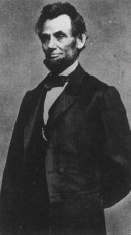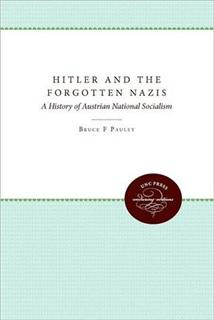Preface
It is small exaggeration to say that Franco-Mexican relations in the nineteenth century have been known only as they pertain to the expedition of Napoleon III that placed the Archduke Ferdinand Maximilian on his ill-fated throne. This intervention of the 1860s has called into existence an enormous body of literature both popular and scholarly. Its sheer volume is attested by the publication by Martin Quirarte in 1970 of an entire book on the historiography of the Maxmilian affair that cites nearly three hundred works without even touching on periodical material.
Through the years I have myself been a worker of this seam from the time when, in my doctoral dissertation, I first encountered the Mexican expedition through the eyes of the Empress Eugnie, wife of Napoleon III. Yet the more I read of this literature, the more I realized that it (my own included) was too limited in one way or another to give adequate, reasonable explanations for the French intervention. Inevitably the emperor appeared as a dreamer (or schemer) who foolishly launched his country on a futile (and/or sinister) adventure that he should have recognized as folly from the start. But the emperor was in fact no fool. He was an intelligent, widely read man who was benevolently disposed toward Mexico. Why should he have blundered so badly?
The problem with most of the studies of the intervention is the narrowness of their focus. Usually they are confined to diplomatic history and to the decade of the 1860s with no more than flashbacks to the events of the War of the Reform in the late 1850s. Studies of Franco-Mexican relations in the years between 1821, when Mexico achieved its independence, and the Napoleonic intervention are virtually nonexistent. Much of the period was virgin territory without track or trace of a scholarly predecessor when I began to explore it. The few books or articles that exist are devoted to very short periods of time, such as those on the Pastry War of 1838-39 or the diplomatic study by William Spence Robertson, France and Latin-American Independence, on French relations with all of the Latin American republics in the 1820s.
Moreover, virtually all of the books on the Maximilian affair (even if written by a citizen of the United States) have been written from either a distinctly European or a distinctly Mexican viewpoint. The European-oriented authors frequently displayed a woeful ignorance of Mexican history. Their Mexican counterparts were no better grounded in their knowledge of the French scene. Not infrequently during the course of my research, I encountered French scholars working on the Napoleonic expedition who could not read Spanish and who saw no need to do so. On the other hand, it was not rare to meet with Mexican researchers who never used French sources and who were unable to distinguish between the Bourbon, Orleanist, and Bonaparte regimes. To them all French rulers were alike. This state of affairs is largely explained by Quirarte's conclusion, No European historian has ever been able to analyze with the necessary critical depth the riches of Mexican documentation related to the empire. For our part we must also confess that no Mexican historian has been able to plumb with any thoroughness the European and American archives necessary for a knowledge of the French intervention and the Second Empire.
This study attempts to broaden and deepen our knowledge of French policies and attitudes toward Mexico by going back to the 1820s, moving methodically forward from there, and using a wide variety of materials, published and unpublished, on both sides of the Atlantic. It proceeds from the convictions that (1) the earlier, ignored decades deserve investigation in their own right and (2) a knowledge of their history is essential to understanding of the intervention of the 1860s. As luck would have it, I was well situated both academically and geographically to undertake this kind of endeavor. As a specialist in ninteenth-century French history I was accustomed to going to Europe for my sources and familiar with such great repositories as the Archives of the Ministry of French Foreign Affairs and the Austrian Haus-, Hof-, und Staatsarchiv. In Paris I came across the archives of the Mexican Embassy, an abundant treasure that has been all but ignored. As a resident of Texas I was close to Mexico and, even more important as it turned out, to the rich resources of the Nettie Lee Benson Latin American Collection of the University of Texas and the help of its learned staff. While I can have no hope that the resulting book has escaped the pitfalls of prejudice, conscious or unconscious, of its author, or that its coverage is anywhere near complete, I can at least say that the research is not limited to European sources. The book is French-oriented only in that its subject (deliberately so) is the French experience in Mexico, not vice versa. My aim has been to build, or to begin to build, a kind of scholarly bridge between the Old World and the New. Doubtless, critics will soon inform me if I have in part succeeded or if I have instead splashed down somewhere in between.
I have also tried to move outside the confines of diplomacy wherein virtually all of the existing scholarly works on France and Mexico are to be found. While diplomatic history is undeniably important to the knowledge of Franco-Mexican relations and constitutes a large part of this volume, it cannot tell the whole story. The attitudes and personalities (mentalits) of the French needed to be analyzed to see how they bore upon French behavior and reception in Mexico. French economic interests in Mexico deserved more consideration than they have received. Much needed to be found out about French subjects living in Mexico, who have indeed been the forgotten men, even though the intervention of the 1860s was taken, ostensibly at least, for the protection of their persons and properties. Who were these French? How many of them were they? (Here I needed the quantitative method.) How did they make a living? Were they remarkably trouble-prone or litigious? Were they somehow different from other foreigners resident in Mexico? These are some of the questions I was able to answer as I made the acquaintance of the French colony of urban little men in Mexico and in them uncovered an important generator of intervention. I found, moreover, that at times the interplay between the more or less constant economic and social factors and the changing scene of public policy and private intrigue yielded conjonctures of vital significance. If the result of these efforts is scarcely history in the manner of the Annales school, it nevertheless yields a French experience in Mexico wider than conventional diplomatic history would allow.
During the many years of research and preparation of material for this book I have incurred debts of gratitude to many individuals and institutions for their help. In France I owe much to Maurice Degros, Conservateur en chef, and to Georges Dethan, Directeur de la bibliothque, of the Archives of the French Foreign Ministry, and to their staff, for facilitating my work over a number of years. I am equally grateful to Silvio Zavala Vallado, Mexican Ambassador to France, and to his staff, who went beyond the call of duty in permitting me to forage at will in the embassy archives, even though the embassy is not (or was not when I was there) equipped with a public reading room and my presence underfoot caused no little inconvenience. I also wish to thank my good friend Maurice Paz, Avocat la Cour de Paris honoraire, who shared with me the fruits of his own remarkable research on Alphonse Dubois de Saligny and who has done so much in many ways to foster my work. The mayors of the towns of Bellme and Saint Martin-du-Vieux-Belleme in Normandy (where Dubois de Saligny lived in retirement and died), Denis Durand and the Count of Romanet, graciously supplied me with local lore and documents illuminating the furtive career of the French agent.




